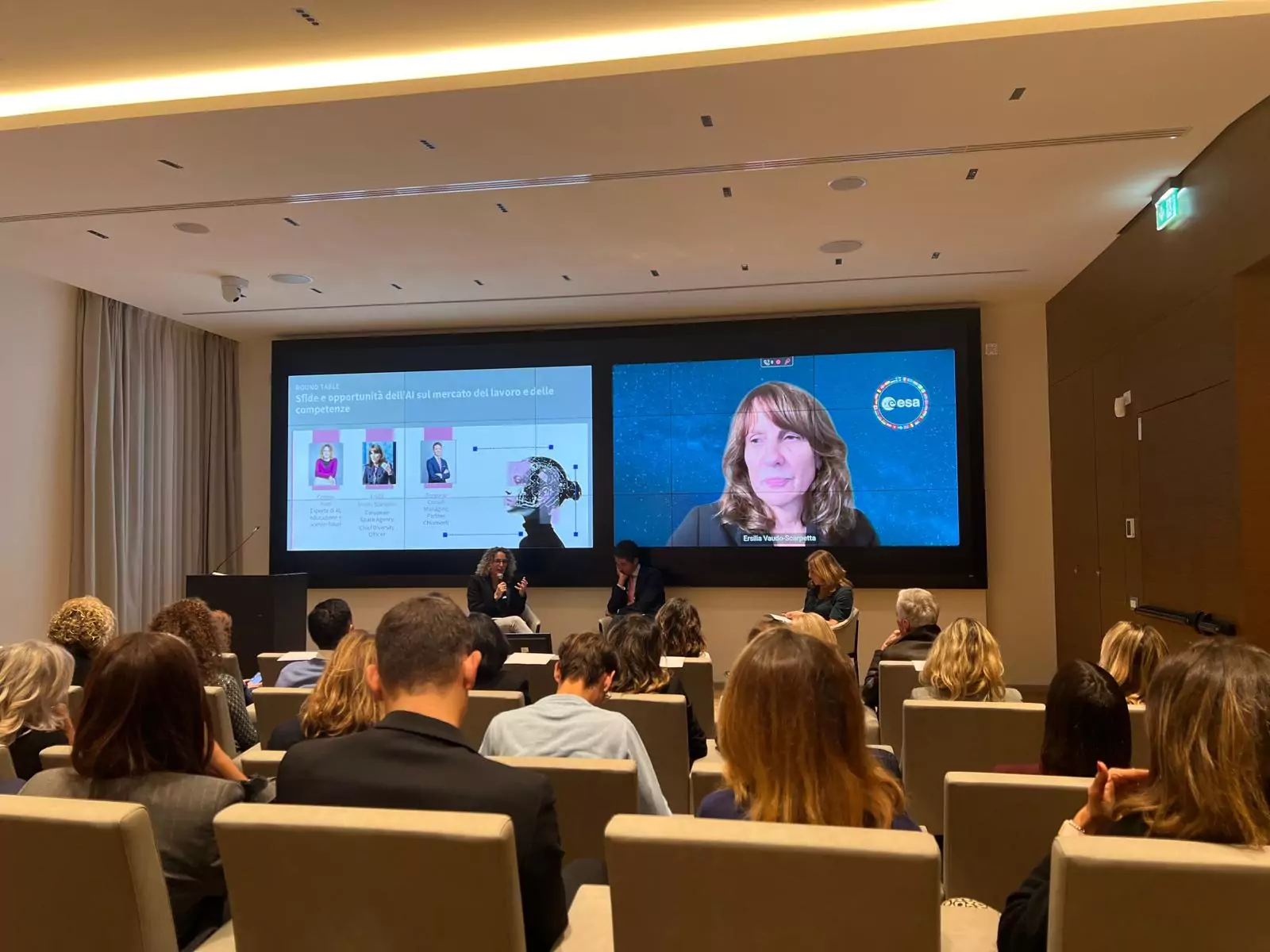Artificial intelligence and its implications when it comes to gender differences was the theme of an initiative organised by AXA Italy and Women7 in collaboration with Angels for Women that highlighted the challenges and opportunities for women.
From the impact of AI on the labour market to gender medicine, the debate paved the way for reflection on the ethical and social changes that artificial intelligence is bringing into our lives.
We cannot ignore the transformative potential of AI, but we must approach it with an open and aware mindset, ready to embrace change without closing our eyes to the risks.
The event opened with speeches by Annamaria Tartaglia, co-founder of Angels 4 Women and co-chair of W7, and Paola Profeta, pro-chancellor for Diversity, Inclusion and Sustainability at Bocconi University. A white paper commissioned by AXA Research Lab on Gender Equality was then presented, offering valuable insights on how to address these challenges with a gender-equal approach.
Cristina Pozzi, who deals with AI in education, spoke about the importance of a cultural change accompanying the development of AI, where technology must be a tool for the betterment of society, not a source of inequality. It is important that companies invest not only in technology, but also in the training of employees, helping them to develop the necessary skills to adapt to these new tools. This is the only way to create a working environment in which AI is seen as an opportunity and not a threat. Ersilia Vaudo Scarpetta, chief diversity officer at the European Space Agency, highlighted the need for clear ethical regulations for AI, emphasising how the inclusion of female perspectives in AI development and governance can prevent discrimination and ensure fairer outcomes. Gregorio Consoli, managing partner of Chiomenti, explained that AI represents both an opportunity and a risk for the legal professions. He compared the impact of generative AI on the legal industry to the effect that machines have had in the mechanical engineering industry, suggesting that generative AI could lead to a profound transformation in the sector. He also cited a McKinsey study that predicts that working hours in the legal professions could be reduced by up to 30 per cent through the automation of repetitive tasks.
In his keynote, Derrick de Kerckhove, sociologist and scientific director of Media Duemila, highlighted the importance of a human-centred approach to technological innovation. The adoption of inclusive AI requires a change of mindset and a willingness to question established processes. Innovation should not be an end in itself, but aimed at solving real problems and responding to people’s needs. The sociologist also discussed the importance of relational sensitivity in a context of artificial intelligence, referring to how technologies developed by female figures, such as the inventor of wi-fi (the pyrotechnic Hedy Lamarr, American but of Austrian birth, who also became a well-known actress, ed.), are examples of how innovation can be driven by relational perspectives. She suggested that this kind of inclusive innovation can offer more empathetic and collaboration-oriented solutions.
The topic of gender medicine was at the centre of the second part of the debate, with speakers such as Flavia Franconi, coordinator of the National Laboratory of Gender Medicine and Pharmacology of the Interuniversity Consortium INBB, Letizia d’Abbondanza, chief customer and external communication officer of AXA Italia, and Luisa Zuccolo, Research Group Leader, Health Data Science Centre at Human Technopole, who discussed the challenges related to the lack of specific data on women in medical research. AI has the potential to identify patterns in data that escape the human eye, leading to more personalised treatments and a better understanding of women’s diseases. However, it warns against the risk that these tools perpetuate bias when trained on biased data. To avoid this, it is necessary to ensure that the data used is representative and not biased by gender stereotypes.
In conclusion, all speakers conveyed a clear message: it is crucial not to miss the opportunity that artificial intelligence represents. Only through a conscious and educational approach can we ensure that we do not miss this precious opportunity and build a future in which AI serves humanity and not the other way around.
Note to the reader: Maria Matloub, who already writes about AI and social implications on Startupbusiness, has set up a specific course (here the info and the possibility to enrol at special conditions for Startupbusiness readers) aimed at women who wish to delve into the topic of artificial intelligence and approach these technologies with a balanced perspective where they experiment, play and then understand, a bit like they do when dealing with design.
ALL RIGHTS RESERVED ©
